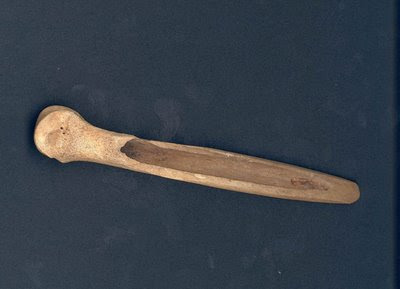 Maybe! From LiveScience via
Maybe! From LiveScience via Popular history, and a familiar rhyme about Christopher Columbus, holds that Europeans made contact with the Americas in 1492, with some arguing that the explorer and his crew were the first outsiders to reach the New World.
But chicken bones recently unearthed at an archaeological site called El Arenal, on the south coast of Chile—dating prior to Columbus’ “discovery” of America and resembling the DNA of a fowl species native to Polynesia—may challenge that notion, researchers say.
While chickens aren’t native to the region, it was believed the local Araucana species found there now was brought to the Americas by Spanish settlers around 1500.
“Chickens could not have gotten to South America on their own—they had to be taken by humans,” said anthropologist Lisa Matisoo-Smith from the University of Auckland, New Zealand.
Polynesians made contact with the west coast of South America as much as a century before any Spanish conquistadors, her findings imply.
“We had the chicken bone directly dated by radio carbon. The calibrated date was clearly prior to 1492,” Matisoo-Smith told LiveScience, noting that it could have ranged anywhere from 1304 to 1424.
DNA extracted from the bones also matched closely with a Polynesian breed of chicken, rather than any chickens found in Europe.


